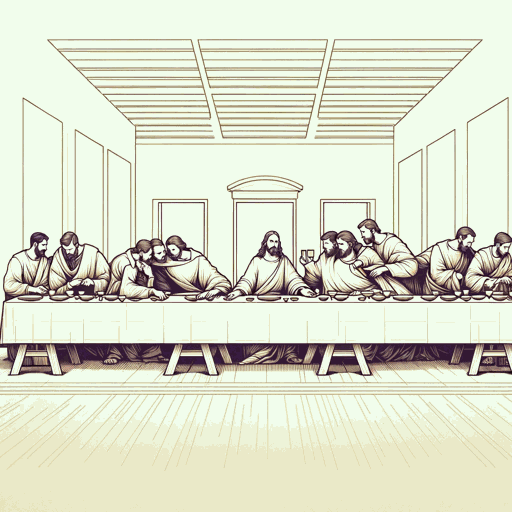50 pages • 1 hour read
William FaulknerAbsalom, Absalom
Fiction | Novel | Adult | Published in 1936A modern alternative to SparkNotes and CliffsNotes, SuperSummary offers high-quality Study Guides with detailed chapter summaries and analysis of major themes, characters, and more.
Important Quotes
Content Warning: This guide contains references to slavery, racial violence, rape, incest, and suicide. The source text uses racial slurs including the n-word, which is reproduced and obscured in quotations in this guide.
“There would be the dim coffin-smelling gloom sweet and oversweet with the twice-bloomed wistaria against the outer wall by the savage quiet September sun impacted distilled and hyperdistilled.”
(Chapter 1, Page 4)
The use of the phrase “dim coffin-smelling gloom” not only appeals to the sense of smell but also sets a somber tone, hinting at mortality and the weight of the past. The image of the “twice-bloomed wistaria” introduces a layer of symbolism, evoking cycles and reflecting the recurring themes and histories within the novel. Words like “savage” and “quiet” juxtapose conflicting qualities, contributing to the novel’s broader exploration of the complex, contradictory nature of the South.
“Then hearing would reconcile and he would seem to listen to two separate Quentins now—the Quentin Compson preparing for Harvard in the South, the deep South dead since 1865 and peopled with garrulous outraged baffled ghosts, listening, having to listen…and the Quentin Compson who was still too young to deserve yet to be a ghost but nevertheless having to be one for all that, since he was born and bred in the deep South the same as she was.”
(Chapter 1, Page 4)
Faulkner employs stream-of-consciousness to delve into Quentin Compson’s complex interiority. The juxtaposition of the two Quentins reflects the fractured nature of the character’s identity, torn between the historical weight of the post-Civil War South and his personal struggles. The use of “reconcile” suggests an ongoing internal conflict, highlighting Quentin’s struggle to come to terms with the haunting legacy of the South’s past. The image of the South as a place “peopled with garrulous outraged baffled ghosts” contributes to the Southern Gothic atmosphere, portraying the region as haunted not only by historical events but by the persistent voices of those who lived through them. Faulkner’s exploration of Quentin’s sense of inevitability in becoming a “ghost” underscores the pervasive impact of Southern history on the individual, interweaving themes of identity, memory, and the past’s inescapable influence.
Related Titles
By William Faulkner

A Fable
William Faulkner

A Rose for Emily
William Faulkner

As I Lay Dying
William Faulkner

Barn Burning
William Faulkner

Dry September
William Faulkner

Go Down, Moses
William Faulkner

Intruder In The Dust
William Faulkner

Light in August
William Faulkner

Sanctuary
William Faulkner

Spotted Horses
William Faulkner

That Evening Sun
William Faulkner

The Bear
William Faulkner

The Hamlet
William Faulkner

The Reivers
William Faulkner

The Sound and the Fury
William Faulkner

The Unvanquished
William Faulkner
Featured Collections
American Civil War
View Collection
Books on Justice & Injustice
View Collection
Family
View Collection
Memory
View Collection
Nation & Nationalism
View Collection
Nobel Laureates in Literature
View Collection
School Book List Titles
View Collection
Southern Gothic
View Collection
War
View Collection

